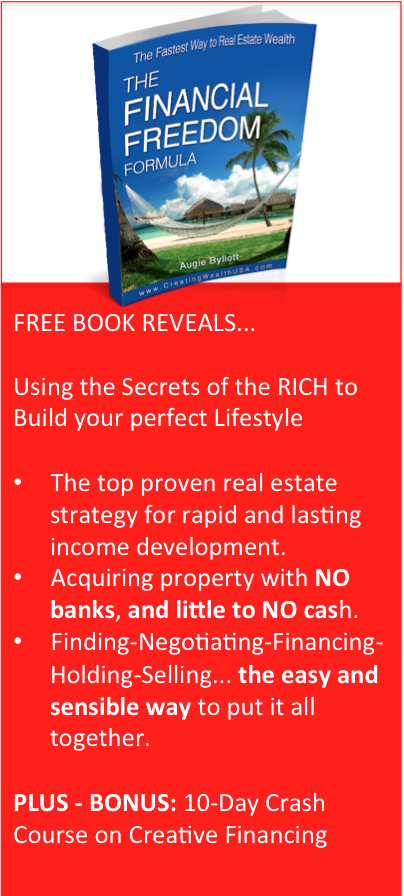Transaction engineering for the real estate investor is akin to a carpenter having a well-equipped toolbox or a surgeon having all the necessary operating instruments to get the job done correctly, safely, and in a way that everyone involved benefits. In our business it includes acquisition, property management, asset protection, negotiating, and tax planning to name a few. Today I want to introduce 10 no-money-down techniques (note: no-money-down means none of your money) that you can use alone or in a combination because no two real estate deals are alike.
I encourage you as you read this to think to yourself “how many techniques, how many tools, can I add to my tool belt that will allow me to effectively deal with and profit from every opportunity that comes along?”
Many investors use the same technique to do every transaction they find – they are doomed. Only occasionally can they find an opportunity where they can employ the single technique they’ve learned.
You’ll learn to recognize opportunities others don’t even see!
When other investors don’t know what to do, you’ll be able to pull a different tool out of your tool belt, a different technique or a combination of techniques, and be successful when they weren’t. And when you master these techniques, you’ll recognize opportunities and complete transactions others don’t even see!
To begin building your buying machine you must learn how to generate leads, identify motivated sellers and then buy below market with deep discounts using cash, private money, or hard money.
Another favorite is to use existing financing by acquiring the property “Subject to.” With this technique, you take over the payments on existing debt without originating a new mortgage. Options and Lease Options are another pair of great techniques to control properties without ownership and still generate great profits.
An opportunity for creating the deal after the deal…
Seller financing is my all time favorite. Sometimes it even presents an opportunity for creating a Deal After the Deal for increased profits. All of these transaction techniques can be structured as no money down. Consider split funding (some money now and some later); with or without payments; with or without a balloon payment, or virtually any combination you can negotiate.
When it comes to selling properties creativity is again your best strategy. How do you sell in a tough market? What do you do when the banks won’t lend? You become the bank! It is the most powerful way to build a fortune, while helping other people resolve their problems or achieve their dreams. And you won’t do it with adjustable rate mortgages or other exotic forms of financing that got this whole economic mess started.
Market your properties to a broader buyer base
We can sell or lease properties to create either cash or cash flow. Lease Options and Rent to Own programs can help more people qualify for home ownership while reducing vacancies. Selling homes with Owner Financing, Wrap Around Mortgages, and Agreements for Deed can help you market properties to a broader buyer base than the traditional buyer who will get a traditional bank mortgage. These creative techniques also help you overcome seasoning issues and maximize cash flow.
Well there you have it, at least 10 creative ways to buy and another 5 ways to sell without using banks. All the traditional avenues remain available but doesn’t it make good sense to have alternatives that work in any market? Using these creative techniques in an ever-changing array of combinations can give you hundreds of possibilities.
If some of the terms above are unfamiliar to you, don’t worry, you’ll have an opportunity to learn about them and put them to good use during our Quick Start Workshop Series. You can visit www.InvestorTrainingSecrets.com to learn more or better yet come to our next workshop!
Creating Your Real Estate Money Machine Workshop
“Inaction breeds doubt and fear. Action breeds confidence and courage. If you want to conquer fear, do not sit home and think about it. Go out and get busy.” Dale Carnegie



